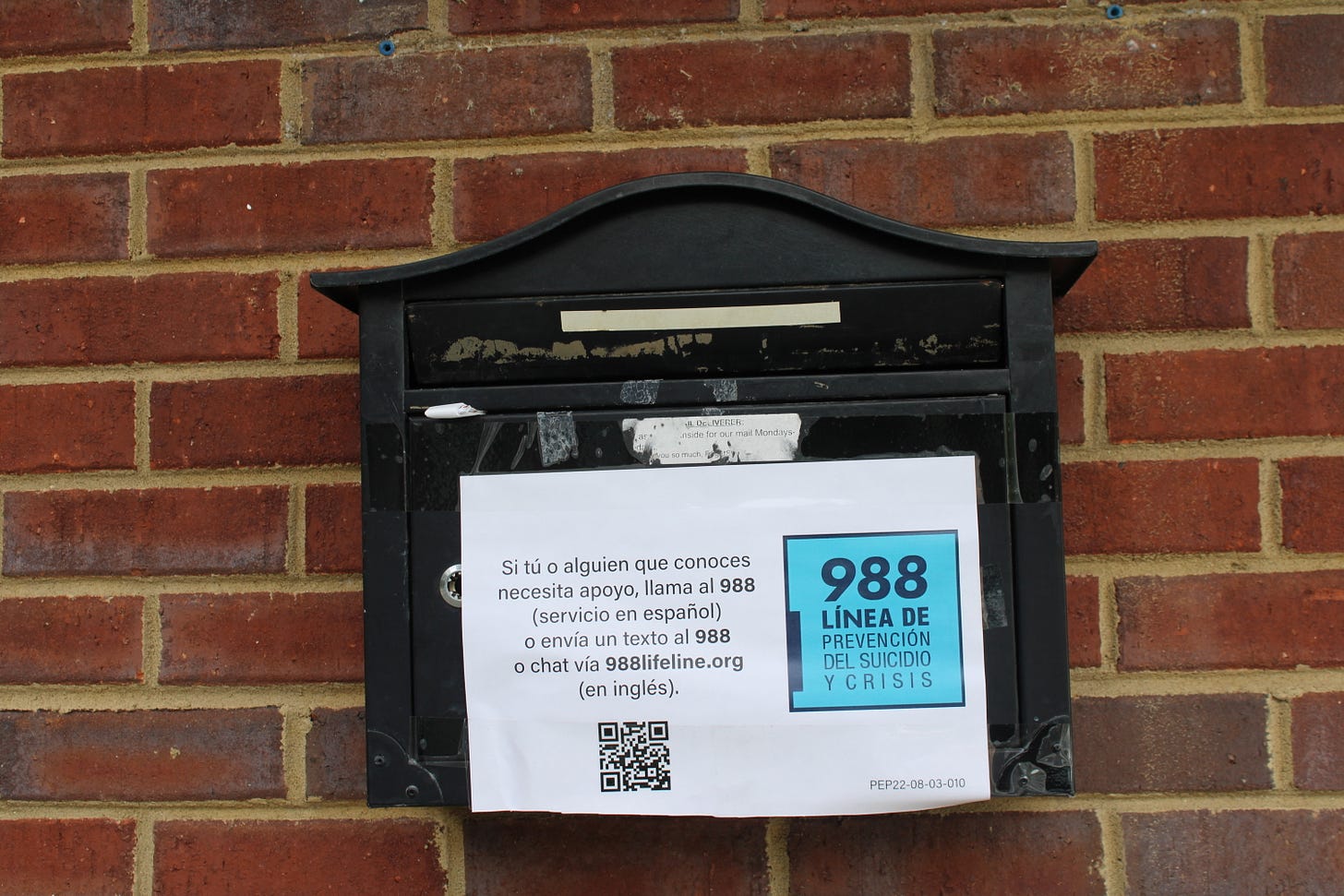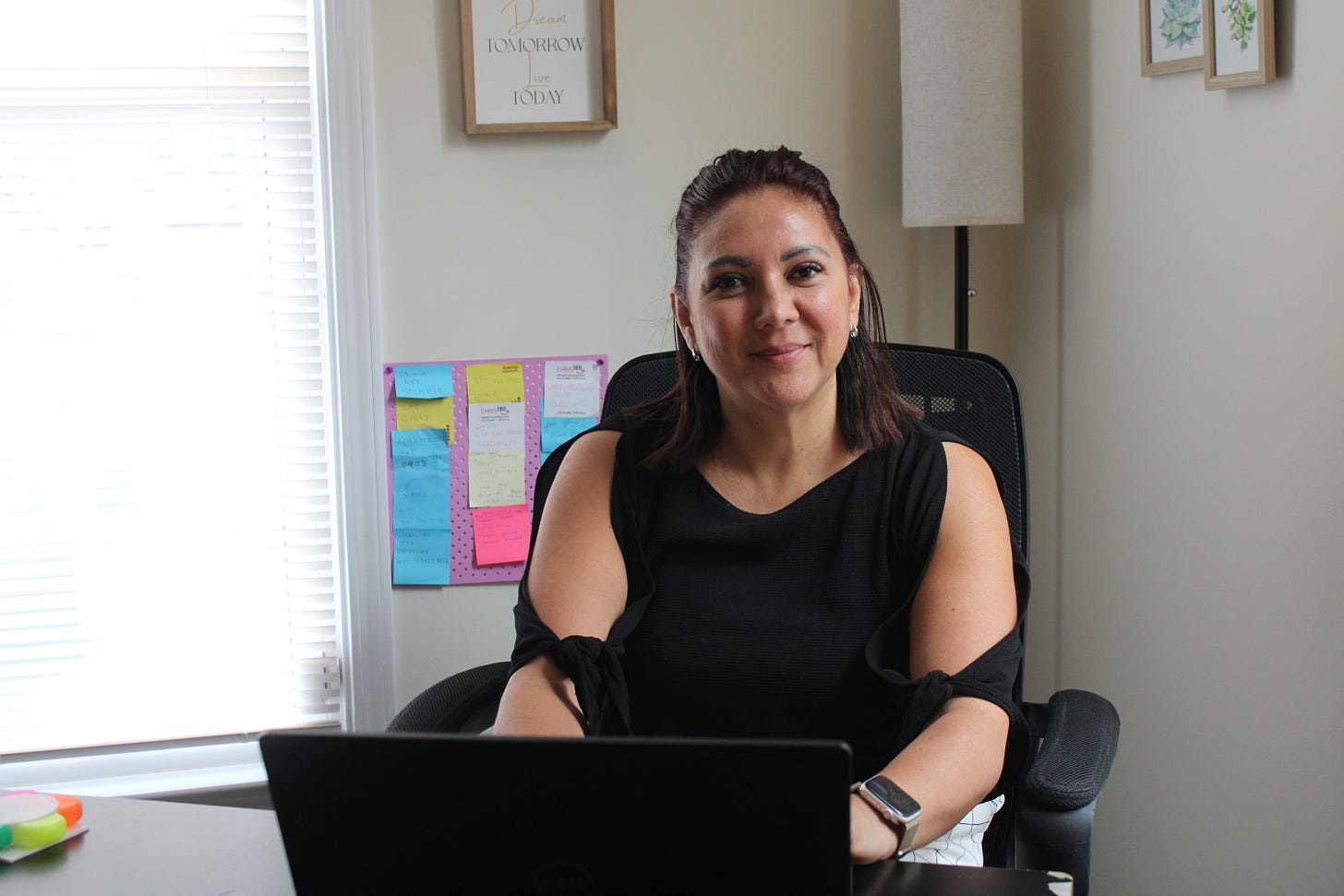Finding and hiring bilingual therapists in Metro Atlanta is a struggle.
One nonprofit is planning to recruit them from Puerto Rico, while another is searching for therapists who speak Bosnian and Korean.

Before Arturo Ortega began working as a mental health clinician 12 years ago, he was a truck driver, correctional officer, a member of the Marine Corps, and a construction worker. But being a bilingual therapist is the job he says was called to do. And, he knows that in this profession, he’ll never struggle to find work.
“I've been all over. Jonesboro, Cobb County, Decatur. They're hiring bilingual therapists everywhere. That’s always been a need. I've never been without a job. Even through COVID. I kept going,” he says on a Tuesday afternoon, surrounded by his colleagues at the Gwinnett Counseling Center of CHRIS 180, a nonprofit that provides behavioral health services to youth, families and adults, with offices across the Metro area.
That’s in part because the pandemic exacerbated mental health needs across the nation, including in immigrant communities in Georgia, says Belisa Urbina, CEO of Ser Familia, a nonprofit serving Latino families in Georgia. “In the past, we saw about 20 to 25% of the number of [Latino youth] that we serve had instances of suicidal ideation. Now it's closer to 60%.”
Nationwide, Georgia is at the bottom of the list when it comes to access to mental health, according to a recent Forbes report. In 2022, Georgia lawmakers passed the Mental Health Parity Act (HB 1013), in an effort to address the gap in resources. But, there was nothing in the legislation that included support for culturally and linguistically specific services for the state’s immigrant and refugee communities.
Urbina says she currently has seven bilingual mental health clinicians on the Ser Familia staff.
“When it comes to counselors, licensed clinical social workers, psychologists and psychiatrists that speak Spanish and are fully licensed in the state of Georgia, there’s less than 100,” she says. The Ser Familia staff tracks the number of providers by tracking listings from Psychology Today, Medicaid and Peach State, and private practices. With Georgia’s population of over 1 million Latinos, she says, “that disparity is enormous.”
So Urbina has come up with a creative solution: recruit students from Puerto Rico.
She’s currently having conversations with folks at Albizu University, which has campuses in San Juan and Miami, about potentially bringing graduate level psychology students from the university to Metro Atlanta, to complete their clinical training. The idea, she says, is to encourage them to get licensed here and eventually settle down and find jobs in Georgia. If all goes according to plan, she hopes to have the first students here in early 2024.
Her workaround is in response to challenges that have continued to come up over the years.
Given the high demand for bilingual therapists, organizations like Ser Familia and CHRIS 180, (who serve low income and under-insured or uninsured folks), are always competing with the private sector, where salaries are often higher.
Another challenge, says Urbina, has been that Georgia’s licensing laws have made it hard for lower income people from minority communities to want to pursue a career in therapy. And those laws have also made it difficult to recruit outside of the US. A legislative effort to create a pathway for foreign clinicians to practice in the state passed the Georgia House last session -HB 520- but failed in the Senate.
There is a concerted and consistent push from mental health advocates, like Darlene Lynch with the Center for Victims of Torture, who are working at the county and state level—through the Georgia Department of Behavioral Health and Developmental Disabilities as well as through the DeKalb Community Service Board—to make mental health care resources more accessible to diverse communities.
But it’s a long game. And Urbina, as well as other mental health providers, need a solution that meets the needs of people now.
Half the clients who come to CHRIS 180’s Gwinnett Counseling Center are first or second generation immigrants, mostly Hispanic, but also Korean and Bosnian, says Melania Soto, who is the Center’s Clinical Director, and also a licensed therapist. In the three years she’s been working there, she’s proud to say she’s been able to expand the number of bilingual therapists in the center from two to four, to meet the needs of the Lawrenceville area, where over half the population is nonwhite.

But, she still needs more people. The bilingual therapist positions, she says, are always open.
“I want to try to bring some Korean therapists, that will be excellent,” she says. Along with more Spanish speaking therapists, she’s also looking for a therapist who can speak Bosnian - to serve the large Bosnian community in Lawrenceville (the center is located less than half a mile away from a Bosnian supermarket and bakery). So far, she hasn’t had any applicants who can speak Korean or Bosnian.
She’s going to keep trying, because for Soto, the success of the counseling center lies on the therapists’ ability to connect with their clients.
“When you are talking from your heart, it's better to express in your own language,” she says. “For our new population, like adolescents, it’s fine because they speak both languages…But for our adult population, we need to talk to them or treat them in their own language. Because that way, the connection is better. If you can get that connection, you’re gonna get better right away.”








There’s an incredible need for Serbocroatian-speaking counselors. As a Bosnian who lived in Atlanta for many years and in the South for 20+, the issues of war trauma, war PTSD and the like are preventing our communities from reaching their full potential. Thank you for highlighting this work, Sophia.